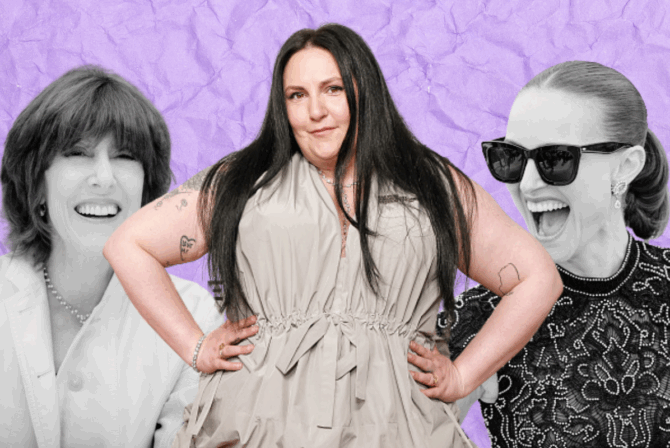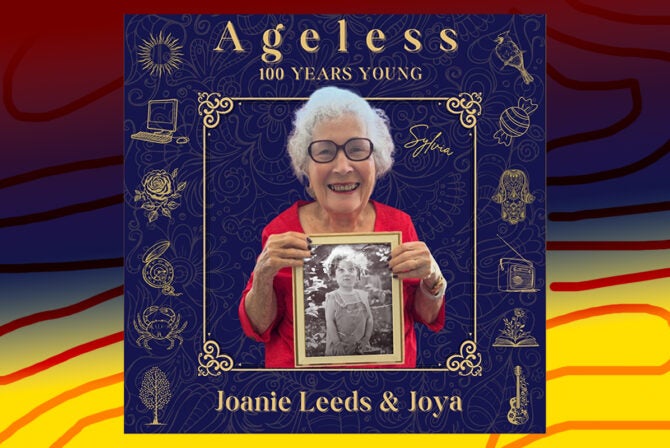Happy 2019! It’s that time again, the second in four months… resolution time. I write this with a smile, because as any mother out there knows, we’re always trying our best and making adjustments as we go along. No need to wait for the New Year, you know. But since it is the start of a new year, I think the time has come for all of us to be a bit kinder.
Sure, we could always do more community service or offer to watch our friend’s kids, get our neighbor’s mail and forget to water their plants. But what I’m talking about here is honesty — and brutal honesty, in particular.
Take, for example, the time I walked into my high school AP art class with freshly dyed black locks. My art teacher nearly knocked over her easel, “Your complexion has too many pink pigments to have black hair!” My face wasn’t pink anymore, it was red! Oy, did that sting.
Please don’t get me wrong, I’m a huge fan of honesty — I’m married to an Israeli, it sort of comes with the territory. I’m not suggesting that we change the content of our opinions, only our delivery. As a general policy, I think it’s a good idea to avoid anything with the word “brutal” attached to it. There is almost always a better way to say the same, oftentimes difficult thing. Trust me, I’m 100% Ashkenazi, I had brutal honesty for breakfast.
I truly love learning from everyone, but when the delivery is so heartless, I’m unable to hear the advice. “Don’t tell me what you really think,” I often find myself replying to blunt feedback. Could you possibly think of another way to tell me you’re not surprised I didn’t win mother-of-the-year?
We have all found ourselves in the position to be honest or brutally honest. Say, for instance, your friend is finally going on a date with her dream guy, and asks your advice for her evening attire. Upon emerging from her closet, do you: A. Laugh at her for picking out her orange corduroy vest and tie-dye mini skirt (yet again), and tell her she may as well not show up? Or B. Simply lead her to that chic black top you bought together last week and tell her how awesome she looks?
Because even if you went with the kinder, gentler Option B, she got the message: You didn’t like the clothes she chose. You were honest, and yet your friend will remember that you gave her good advice, and took the time to be respectful and delicate with her feelings.
I understand the temptation of brutal honesty. It’s fast and genuine. Occasionally, it serves as comic relief. The amount of time one saves in answering insensitively, however, is certainly not worth the time it takes to win back your friend.
While watching my (and probably your) new favorite show, The Marvelous Mrs. Maisel, I could not help but see these two virtues personified in its two main characters. Honesty (played by Midge) is polished, respectful, smart, comical, cultured, and strong. Brutal Honesty (performed by Susie) is witty, clever, and amusing — but also crass, insensitive, angry, and hurtful. And while Susie happens to be my favorite character, she’s not someone I’d go to for advice.
I believe that our tendency for brutal honesty is a product of our culture: Our addictive reality shows portray popular “celebrities” sharing their unfiltered opinions during their confessionals. While they may be entertaining, much of their behavior would be considered inexcusable in any other situation. Yes, I’m looking at you, Real Housewives, and all of your constituents.
Social media exacerbates this; we are often encouraged to hold nothing back. The higher the shock value, the more likes, shares and retweets. But instead of being “brutally honest” in these forums, shouldn’t we be more careful with our newly acquired platforms of influence?
Which brings me to my concluding point: Honesty is opinion, truth is fact. When one offers their honesty, it’s just one individual sharing their personal thoughts. Facts do not change and have no perspective; opinions transform constantly given different viewpoints and feelings. We must try to remember this distinction when voicing our beliefs, and hearing someone’s feedback.
After all, we’ve been discussing this issue for thousands of years — as it says in Talmud, Ketubot 17a, “A person’s disposition should always be empathetic with mankind, and treat everyone courteously.” I honestly couldn’t have said it better myself.








